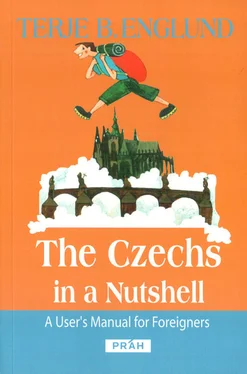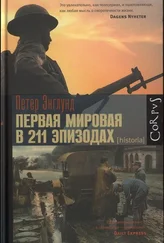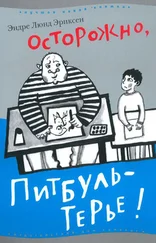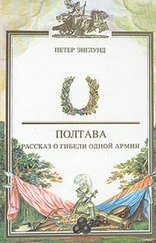This goes double for the Czechoslovak Germans expelled to Austria in 1945. They should, as the Czech Republic’s former premier Miloš Zeman (see: Carlsbad English Bitters) once subtly declared, be “grateful for not being executed as traitors”. As a result of these historic resentments, even the smallest and most insignificant Czech-Austrian spat has a tendency to end up as wild discussions about the Second World War.
In recent years, nothing has demonstrated the complexity of the Czechs’ troubled relations with their southern neighbours better (or worse, if you like) than the debate about the Czech nuclear power plant Temelín.
The construction of the plant started under the communists in the early 1980s, and both the dimensions of the giant project and the crazy idea of locating it in the most picturesque and untouched part of South Bohemia, truly revealed classic communist sensitivity. But when the Bolsheviks were finally kicked out of power in the Velvet Revolution, so many billions of korunas were already invested that the new political leadership in Prague decided, after much hesitation, to complete the “monster project” and to put it into operation.
How did the Austrians react? If you consider that Temelín was originally designed with communist technology, that the worldstill had the Chernobyl catastrophe fresh in its memory and that the Austrians themselves, because of their “anti-nuclear psychosis” had recently decided to scrap their modern and Western-built plant in Zwentendorf, the answer is obvious: with a combination of incredulity and undisguised fury.
Unfortunately, instead of displaying some clever diplomatic footwork, the Czech political elite let historic animosity and emotions take complete control.
If the Austrians are so deadly afraid of nuclear energy, why don’t they protest against plants in Germany and Switzerland? And why do the Austrians disregard their own scientists who declare that Temelín, after some initial problems, now meets international standards? Well, that’s because those stuck-up Austrians still believe they are imperial capos , entitled to boss around the Czechs at their pleasure! But those days are gone! In reality, Austria has fewer inhabitants than the Czech Republic, their industrial output is falling, and they don’t even have a nuclear power plant!
Now, add a unique national referendum that Austria in 2000 arranged only to press the Czech Republic to scrap Temelín, a Czech prime minister (once again the golden-tongued Miloš Zeman) who publicly stated that anti-nuclear Austrians were a “bunch of idiots” (see: Cursing) plus zealous Austrian demonstrators who, several years after Temelín was put into operation, still regularly blocked crossings along the two countries’ 466-kilometre-long border.
Spice the bad, nuclear atmosphere up with lots of grievances from the first years after the Velvet Revolution when Austrian shopkeepers installed signs such as Czechs, Please don't steal in our Store , and you understand why many Czechs regard the Austrians as big-mouthed and arrogant parvenus, while Otto von Habsburg, son of Austria-Hungary’s last Emperor Karl, didn’t hesitate to tell Czech media that “I love all the peoples in the former Dual Empire, well, except the Czechs, of course”.
The funny thing, though, is that a foreignerregarding the two quarrelsome neighbours from outside might confuse them, because the similarities are striking.
Three centuries in a common state with almost identical educational system, cultural institutions and the same bulging bureaucracyhave left indelible traces. The architecture of the cities in Lower Austria, the country's most populous state, is almost indiscernible from cities in Southern Moravia and Bohemia. Both Czechs and Austrians pack their joviality and badly concealed hedonisminto polite formalities, obstinate use of academic titlesand a common worshipping of ingrained conventions (sec: Dancing Schools).
Ethnically, the ties are so close that it’s almost impossible to tell the two peoples apart. Open Vienna’s telephone book to any page, and you'll find it is crowded with Czech-sounding surnames. Thanks to the huge influx of Czech and Slovak workers to Vienna by the end of the nineteenth century, some 200,000 Austrians carry family names with roots in the Czech language. And some world-famous Austrians with apparently German names — Sigmund Freud, Gustav Mahler and Rainer Maria Rilke among them — were actually all born in Bohemia or Moravia.
Also on the political level, relations are far more interwoven than historical hangover and the unfortunate Temelín affair might suggest.
When Nikita Khrushchev’s political thaw finally reached Stalinist Czechoslovakia in the mid-1960s, Austria gave full backing to Alexander Dubček and his comrade-reformers. One might even claim that Helmut Zilk, the boss of Austrian state television at that time and later Vienna’s flamboyant mayor, personally contributed to kick-starting the Prague Spring when he launched a tele-bridge where Czech and Austrian teams competed live. In 1968, when the attempt to reform communismended in tragedy, Premier Bruno Kreisky (check the origin of that name!) personally ensured that Austria for the next two decades adapted a very generous — and in the Czech Republic never fully appreciated — policy towards Czech political emigrants.
It’s a telling expression of all the misunderstandings and failures accompanying the Czech-Austrian relations that when president Václav Havel, in the late 1990s, decided to reward Helmut Zilk with a state order for his personal contribution to help Czechs and Slovaks, it all ended in a scandal. The Czech Ministry of Interior ran a routine check on Vienna’s popular and respected mayor and found his name registered among the communist secret police StB’s foreign informers (see: Lustration). Thus, a well-meant step towards reconciliation turned out to be just another slap in the face.
Ultimately, to understand the Czechs’ relations to the Austrians, it’s tempting to use a theory, developed by the writer Herman Hesse, that also applies to their relations to the Germans:
If you dislike a person, you dislike something in him that is a part of yourself. Consequently, the Czechs dislike the Austrians even more than they dislike the Germans, because they, thanks to the centuries of Habsburg rule, have even more in common with them. But the difference is not too significant. As every Czech knows — Austrians are basically Germans who wear hats!
It happens year after year: when the holiday season starts in July, almost one million Czechs (correct, that’s 10 percent of the population!) pack their Škodas full of beer, camping gear and food, and head off to the South. After a swift, eight-hour drive, most of them (see: Driving a Car) reach a camping site, pension or hotel on Croatia’s beautiful Adriatic cost.
Of course, the sea (plus relatively low prices) is what primarily draws all those Czech landlubbers to Croatia. But there are lots of other advantages, too. Croatian is a Slavonic language, and a Czech can, with some effort, communicate in his or her mother tongue. Their respective cultural heritage is not that different, as both the Czechs and the Croatians were for hundreds of years a part of Austria-Hungary, and both nations have experienced a communist regime, although Tito’s Yugoslavia was definitely a lighter and more colourful version of one than Husák’s grey Czechoslovakia.
This, you might conclude, must make the Czechs feel almost at home in Croatia and mentally very close to the Balkan region. Peculiarly enough, you’re both absolutely right and completely wrong. Yes, most Czechs apparently feel almost at home in Croatia. And no, barring the former Soviet Union (see: Russians), it’s hard to imagine a geographic area that has a worse image than the countries on the Balkan Peninsula.
Читать дальше








![Theresa Cheung - The Dream Dictionary from A to Z [Revised edition] - The Ultimate A–Z to Interpret the Secrets of Your Dreams](/books/692092/theresa-cheung-the-dream-dictionary-from-a-to-z-r-thumb.webp)



